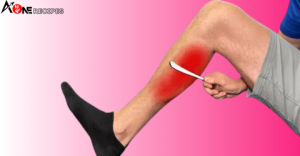Liver failure is one of the most serious health conditions affecting one of the body’s most vital organs. The liver not only purifies the blood of toxins, but also plays a role in regulating metabolism, producing hormones, storing energy, and contributing to the health of the skin and other organs.
The following are the most prominent symptoms that may indicate a liver problem, requiring immediate medical attention and attention:
- Pain or swelling in the upper right abdomen
Pain or swelling in the upper right abdomen is an early sign of liver dysfunction. This feeling should not be ignored, especially if it persists or worsens. It is recommended to consult a doctor immediately for an evaluation. - Appearance of spots or marks on the skin
When the liver’s ability to purify the blood declines, blood clots may form under the skin, resulting in the appearance of red or blue spots known as “spider angiomas.” These signs usually appear in the chest or abdomen and may be a clear indication of deteriorating liver function. - Joint pain and persistent fatigue
Chronic fatigue, joint pain, nausea, and vomiting are all symptoms that may be associated with liver disease, especially autoimmune hepatitis, where the immune system mistakenly attacks liver cells. According to the National Institutes of Health, women are more susceptible to this type of inflammation. - Yellowing of the skin and eyes (jaundice)
When the liver is unable to remove bilirubin, a substance produced by the breakdown of old blood cells, this substance builds up in the body, causing yellowing of the skin and the whites of the eyes, a condition known as jaundice. Dark urine may also be accompanied by a classic sign of liver problems. - Cognitive and concentration disturbances
A common symptom of advanced liver disease is the accumulation of copper and toxic substances in the brain, which can affect mental function, causing impaired thinking or memory. In some cases, these symptoms may worsen to resemble those of Alzheimer’s disease. - Muscle weakness and body wasting
If you notice swelling in the ankles or abdomen along with a general loss of muscle mass and thinness in the arms and legs, this may indicate a fluid and protein imbalance resulting from deteriorating liver function. This is considered an advanced symptom of liver fatigue.
How to maintain your liver?
Prevention is better than cure, and the risk of liver problems can be reduced by:
Eating a healthy diet rich in vegetables and healthy proteins.
Drinking adequate amounts of water.
Exercising regularly.
Avoid taking medications or supplements without consulting a doctor.
Avoid alcohol and smoking.
Conduct regular liver tests, especially for those with genetic or medical risk factors.




